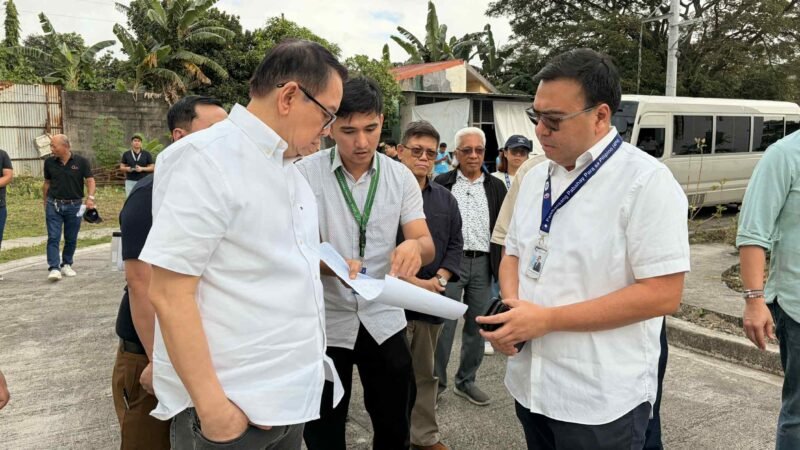From Hobbyist to Professional: Turning Passion into a Career in Gunsmithing or Drone Technology
For many enthusiasts, the journey from tinkering in a workshop or piloting drones in open fields to building a professional career might seem daunting. However, the evolving industries of gunsmithing and drone technology offer clear pathways for hobbyists to turn their passion into fulfilling careers. With specialized certifications and hands-on training, enthusiasts can develop the skills necessary to meet the growing demands of these exciting fields. Sonoran Desert Institute (SDI), which is accredited by the Distance Education Accrediting Commission (DEAC), recognizes how hobbyists in firearm restoration or drone piloting can transition into professional roles, highlighting the importance of education and advanced training in achieving success.
Recognizing the Opportunity
Gunsmithing and drone technology are two industries that thrive on innovation and craftsmanship, making them ideal for individuals driven by curiosity and creativity. Hobbyists often have a head start, as their hands-on experience and personal interest provide a solid foundation for building professional skills.
The Rising Demand for Skilled Professionals
Advancements in technology have created new opportunities in both fields, from restoring vintage firearms to operating drones for agricultural or industrial applications. Law enforcement, military, private collectors and commercial sectors all rely on skilled professionals, making this an opportune time for hobbyists to pursue formal careers.
For example, gunsmithing professionals are needed to restore antique firearms or customize modern ones, while certified drone pilots are in demand for tasks like aerial inspections, environmental monitoring and filmmaking.

Transitioning from Enthusiast to Expert
The move from hobbyist to professional begins with acquiring the knowledge and credentials that are essential in today’s competitive job market. Educational programs designed for these industries provide the structure and training needed to turn passion into a viable career.
Educational Pathways in Gunsmithing
For firearm enthusiasts, gunsmithing offers a diverse range of career paths, including restoration, design and maintenance. Programs such as the Certificate in Firearms Technology – Gunsmithing provide a comprehensive education in firearm mechanics, safety protocols and customization techniques.
Through hands-on training, students can refine their skills in tasks like:
- Restoring historical firearms to their original condition.
- Customizing modern firearms to meet specific client needs.
- Performing routine maintenance and safety inspections.
Hobbyists who have spent years restoring firearms as a pastime can benefit greatly from formal training, which deepens their expertise and prepares them for industry standards.
Certifications for Drone Pilots
Drone technology offers an equally exciting pathway for hobbyists passionate about flying drones and exploring their capabilities. The Certificate in Uncrewed Technology – Aerial Systems equips students with the technical knowledge and operational skills to excel as professional drone pilots.
This program provides training in:
- Navigation and flight planning.
- Compliance with FAA regulations.
- Advanced applications like aerial photography, surveying and infrastructure inspection.
With formal certifications, hobbyists can elevate their abilities and gain the credentials required to work in industries like agriculture, real estate and filmmaking.
Key Skills to Develop
Both gunsmithing and drone technology require a mix of technical expertise, creativity and an understanding of safety and compliance. By building on their hobbies, individuals can focus on refining specific skills that are essential for professional success.
Mechanical and Technological Mastery
Gunsmithing hobbyists may already be familiar with firearm mechanics, but professional roles demand a deeper understanding of materials, precision tools and advanced technologies. Similarly, drone enthusiasts need to learn about sensor integration, data analysis and specialized software to meet the requirements of commercial operations.
Problem-Solving and Adaptability
In both fields, professionals often face unique challenges, from diagnosing firearm malfunctions to troubleshooting drone performance in the field. The ability to think critically and adapt quickly is a valuable skill that sets successful professionals apart.
Regulatory Knowledge
Compliance with legal and safety regulations is non-negotiable for professionals in these industries. Educational programs emphasize the importance of adhering to local and federal laws, ensuring that students are well-prepared to navigate complex regulatory landscapes.
Benefits of Formal Training
While hobbies provide an excellent starting point, formal education bridges the gap between amateur and professional expertise. Institutions offer programs tailored to hobbyists seeking to transition into full-time careers.
Hands-On Experience
The curriculum combines theoretical knowledge with practical application, allowing students to develop real-world skills. Whether restoring firearms or piloting drones, students gain experience that prepares them for professional roles.
Networking Opportunities
Educational programs also connect students with industry professionals, creating opportunities for mentorship and career advancement. For hobbyists unfamiliar with the professional landscape, these connections can be invaluable.
Credibility and Marketability
Certifications from reputable institutions add credibility to a professional’s resume, making them more attractive to potential employers or clients. Formal credentials demonstrate not only technical expertise but also a commitment to excellence.
Realizing Career Potential
As the gunsmithing and drone technology industries continue to grow, the career possibilities for hobbyists are expanding. From designing custom firearms to capturing aerial footage for major productions, professionals in these fields can pursue diverse and rewarding paths.
Gunsmithing Careers
Hobbyists with a passion for firearm restoration can explore roles such as:
- Restoration Specialists: Focus on bringing historical firearms back to their original condition.
- Firearm Customization Experts: Tailor firearms to meet client specifications, blending functionality and aesthetics.
Drone Technology Careers
Drone enthusiasts can turn their interest into professional success by pursuing careers such as:
- Certified Drone Pilots: Operate drones for industries like real estate, agriculture and infrastructure inspection.
- Drone Maintenance Technicians: Ensure drones are functioning optimally, performing regular repairs and upgrades.
A Future Built on Passion
For hobbyists ready to transition into professional roles, the journey begins with education and a commitment to growth. The combination of hands-on experience and formal training enhances technical abilities and opens doors to new opportunities in rapidly evolving industries.
This highlights the importance of turning an interest into expertise, creating a career path that is both fulfilling and impactful. Sonoran Desert Institute demonstrates that by embracing the resources available through institutions, hobbyists can transform their passion for firearms or drones into meaningful careers. With the right training and determination, the possibilities are endless.



